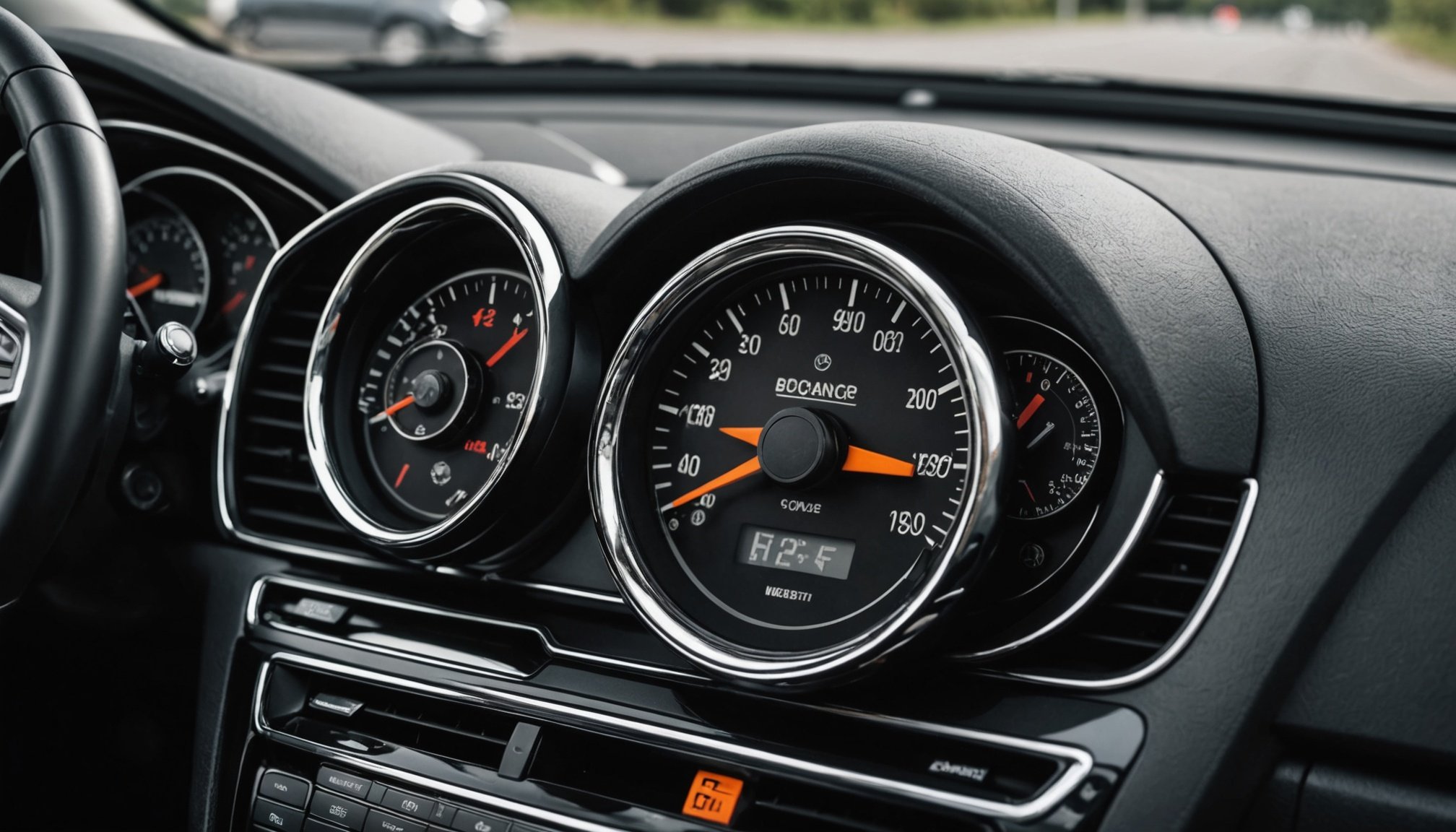Understanding Car Air Conditioning Systems
Car air conditioning is essential for a comfortable driving experience, especially during warm weather. Understanding its system components and functionality can help maintain optimal performance.
Overview of Functionality
At its core, car air conditioning involves circulating refrigerant to cool the vehicle’s interior. The system relies on a cycle of compression, condensation, expansion, and evaporation. This process absorbs heat from the car cabin, providing a cooler atmosphere.
Also read : Ultimate Guide to Safely Carrying Your Bicycle on a Car: UK Legal Insights
Key Components
The primary components include the compressor, condenser, evaporator, and expansion valve. The compressor acts as the heart, pressurising refrigerant gas. The condenser cools and liquefies this gas. Next, the expansion valve reduces its pressure, transforming it into a vapour in the evaporator, absorbing heat and cooling the air distributed inside the car.
Importance of Maintenance
Regular maintenance is vital for ensuring the system operates efficiently. Key practices include checking refrigerant levels, inspecting hoses for leaks, and ensuring the compressor functions properly. Neglect can lead to reduced cooling efficiency or, worse, system failure. By understanding your car’s air conditioning system and its components, you can ensure a comfortable drive, regardless of the temperature outside. Proper maintenance not only prevents malfunctions but also prolongs your system’s lifespan.
This might interest you : Top Tips for Safeguarding Your Convertible During the UK”s Rainy Season
Seasonal Considerations for the UK Climate
Navigating the UK’s climate involves grappling with its characteristic weather variability. This variability can significantly impact the performance of air conditioning systems in vehicles. Fluctuating temperatures often require adjustments in your car’s climate control settings to ensure efficiency and comfort. Understanding these seasonal shifts is crucial for maintaining optimal performance and extending the longevity of your vehicle’s systems.
Seasonal maintenance is vital when preparing your car for the distinct summer and winter periods in the UK. In summer, ensure that your car’s air conditioning is serviced and the refrigerant levels are optimal. Regular checks on the system’s filters can prevent blockages, ensuring your car stays cool during the warmer months. In contrast, winter demands attention to your vehicle’s heating system, and it’s crucial to ensure that the defrosting function is working effectively.
Additionally, specific maintenance tips are practical during these seasons. In summer, always check coolant levels to prevent overheating. Meanwhile, in winter, consider switching to tyres suitable for colder conditions and ensure battery health as low temperatures can affect its efficiency. Attending to these details will help mitigate the climate impact on your vehicle.
Regular Maintenance Practices
Regular maintenance is crucial for the longevity and efficiency of your car’s systems. Routine system inspections ensure everything runs smoothly, preventing costly repairs later.
Importance of Regular Inspections
Regular inspections help identify issues before they escalate. During system inspections, technicians check for wear and tear in your car’s components. This proactive approach maintains optimal performance and safety.
Air Filter Replacement
Air filter replacement is a key part of car maintenance. How often should you replace air filters? It is recommended every 12,000 to 15,000 miles. This ensures clean air circulates through your car’s engine, improving fuel efficiency and performance. The air filter traps dirt and debris; a clogged filter can reduce engine power and increase emissions. Therefore, keeping it clean is essential.
Refrigerant Levels
Maintaining proper refrigerant levels is critical for your vehicle’s air conditioning system. But how often should you monitor refrigerant levels? Ideally, they should be checked once a year during regular inspections to ensure your A/C system operates efficiently. Without adequate refrigerant, your air conditioning may work harder, impacting fuel economy and comfort. Ensure your system is clean and free of debris for optimal performance.
Optimizing Use of Air Conditioning
Achieving an energy-efficient cooling experience in your vehicle requires thoughtful practices. To enhance your air conditioner’s efficiency, begin by using the recirculation setting. This feature allows the system to cool the already-conditioned air inside the car, rather than consistently drawing in warm air from outside, thereby reducing the workload and saving energy.
To further minimize energy consumption, adjust your driving habits in conjunction with cooling needs. Consider opening windows for a few minutes before turning on the air conditioner, especially in extremely hot conditions. This helps expel hot air, allowing the system to cool down the interior more quickly once activated.
Incorporating energy-saving modes available in many modern vehicles can also contribute to efficient air conditioning usage. These modes automatically adjust cooling intensity based on the internal temperature, ensuring comfort while preventing unnecessary energy drainage.
Finally, regular maintenance of your car’s air conditioning system supports optimal performance. Periodic checks of refrigerant levels and filter cleanliness ensure efficient air flow and temperature control. Employing these strategies enhances cooling effectiveness and reduces energy consumption, aligning with the goal of efficient usage.
Troubleshooting Common Issues
Understanding air conditioning problems can help you avoid discomfort during hot weather. Recognizing symptoms early can save time and money on repairs.
Recognizing Symptoms of Poor AC Performance
Knowing when your AC isn’t functioning optimally is crucial. Common symptoms include weak airflow, unusual noises, or inconsistent temperatures. If the air feels warmer than usual or if there are frequent temperature swings, there’s likely an underlying issue. Strange smells could indicate mold or a dirty filter, while leaks might suggest a refrigerant problem.
DIY Fixes vs Professional Help
Some AC issues can be tackled with simple DIY solutions. For instance, you can improve weak airflow by cleaning or replacing your air filter. Inspect vents for blockages to ensure good flow. If you notice water leakage, checking and clearing any clogged drain lines might help. However, more severe symptoms often need a professional’s touch.
When to Seek Expert Assistance
Certain symptoms necessitate expert help. If there’s a significant decrease in cooling efficiency or loud, persistent noises, it’s time to consult a technician. Persistent issues such as refrigerant leaks or electrical problems require specialized tools and expertise. By recognising these signs early, you can prevent extensive damage and costly repairs.
Practical Tips for Energy Efficiency
When it comes to enhancing your vehicle’s fuel efficiency, using air conditioning efficiently is crucial. An efficient air conditioning system can actually improve fuel economy, as it reduces the engine’s workload. To achieve this, always ensure your AC is serviced regularly. A well-maintained system requires less energy to perform, cutting down on fuel consumption.
For those embarking on long journeys, practical cost-saving tips involve using your air conditioning strategically. Begin by cooling your car with windows rolled down, then rely on the AC at a moderate setting. This method lessens the burden on your vehicle’s engine, translating into longer intervals before refueling.
Adopting eco-friendly driving practices can further complement this strategy. This involves maintaining a steady speed, avoiding sudden accelerations, and being mindful of heavy traffic areas where frequent stops are common. Using cruise control on highways also contributes to maintaining optimal fuel economy.
Responsible use of air conditioning doesn’t just result in immediate financial savings but also supports sustainable driving habits. By following these tips, drivers can achieve a balance between comfort and cost savings, maximizing efficiency while minimizing environmental impact.











